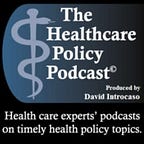The word Anthropocene has been used over the past 20 years to define the modern era during which time man has come to shape the environment. This reality became significantly more pronounced with the advent of the nuclear Anthropocene. As Prof. Higuchi explains in the introduction of "Political Fallout," from 1945 to 1963, when the Partial Test Ban Treaty (PTBT) was signed by the US, the Soviet Union and Britain, these three nations conducted approximately 450 nuclear weapons tests, in sum equal to 26,000 Hiroshima-sized bombs, that caused worldwide radioactive contamination. Though in small concentrations, radioactive particles from this period of atmospheric nuclear weapons tests are still present around the world. How and why the 1963 Partial Test Ban Treaty, signed by the US, the Soviet Union and Britain, came into effect remains important. Among other reasons, this past August the UN Secretary General, Antonio Guterres, concluded the world has entered “a time of nuclear danger not seen since the height of the Cold War.” Two weeks ago the Science and Security Board of the Bulletin of the Atomic Scientists forwarded its Doomsday Clock to 90 seconds to midnight. The clock has move forward 4:30 since 2010. This history is also important because it potentially offers lessons regarding how we address the climate crisis.
During this 46 minute discussion, Prof. Higuchi begins by defining the Japanese word hibakusha and defines what is radioactive fallout. He next discusses how concerns regarding nuclear fallout became publicly known, how the US's understanding of radioactive contamination evolved through the 1950s, discusses his "politics of risk" framework used to discuss fallout's biological effects, social acceptability and policy implications, how ultimately a PTBT was achieved, and discusses what lessons can be learned from the nuclear Anthropocene relative to the climate crisis.
Prof. Toshihiro Higuchi is an Assistant Professor of History at Georgetown University and field chair of Regional and Comparative Studies (RCST) in the School of Foreign Service (SFS), Georgetown University. Prof. Higuchi is also an official historian for the International Commission on Radiological Protection, serves on the editorial board of Kagakusi kenkyu, the executive board of Peace History Society, and a committee of the Japan Society for the Promotion of Science. A native Japanese, Prof. Higuchi received his PhD at Georgetown University in 2011. Before he returned to Georgetown in 2016, he was a postdoctoral fellow at the Center for International Security and Cooperation, Stanford University (2011-12); an American Council of Learned Societies New Faculty Fellow at the University of Wisconsin - Madison (2012-14); and, a Hakubi Project assistant professor at Kyoto University (2014-15). His Political Fallout: Nuclear Weapons Testing and the Making of a Global Environmental Crisis (Stanford University Press, 2020) won the 2021 Michael H. Hunt Prize for International History from the Society for Historians of American Foreign Relations. His academic works have also appeared in Peace & Change, Journal of Strategic Studies, Historia Scientiarum, and International Relations of the Asia-Pacific. His opinion pieces have also appeared in a number of news outlets, including the Bulletin of the Atomic Scientists and Asahi Shimbun. Prof. Higuchi is a member of several professional societies including the Society for Historians of American Foreign Relations, History of Science Society, Association for Asian Studies, American Society for Environmental History, Peace History Society, and Japan Association of International Relations.
Information on "Political Fallout" is at: https://www.sup.org/books/title/?id=23212.




